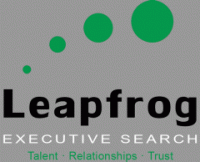Brand Turmoil?
Category : 2019
For decades, the biggest and most valued companies were the result of robust manufacturing, sprawling brick and mortar locations, and costly inventories. The value of a company was determined by measuring tangible assets across an enterprise-often in one country or a local market. Enter the knowledge economy. Depending on whose research you peruse, 70%-80% of a company’s market value today is based on intangibles like brand equity, intellectual capital, patents and trade secrets, and goodwill.
A large component of corporate value is brand equity. E-commerce giant Shopify defines brand equity as, “the commercial value that derives from consumer perception of the brand name of a particular product or service, rather than from the product or service itself.” Investopedia adds that value is driven by comparing a recognizable name to a generic competitor. Specifics of brand equity include …
- How well a company knows its customers (big data and AI).
- How well the brand is known by its desired customers (social media).
- The degree of loyalty customers give to the brand (Net Promoter Score over customer satisfaction).
- The quality of what the brand offers (perceived as much as delivered).
- Future earnings that can be attributed to the brand (measuring the present by what hasn’t happened).
VW, Wells Fargo, Chipotle, and Facebook remind us that circumstances, changes, and choices directly impact the value of a brand. VW and Wells Fargo are learning a brand is like trust. It takes a long time to build, can be destroyed in moments, and then requires a long and demanding journey to regaining what was lost.
Enough about big companies. What about you?
What is true of companies is true for individuals. A healthy and recognized brand is a combination of what you do and how your impact is perceived by those you serve-or want to serve. Strong brands depend on relationships as much as they depend on results. Focus on relationships without results and your reputation gets built on grandiloquence not outcomes. Focus on results without caring about relationships, and you eventually run out of people who are willing to work with someone who doesn’t care about people.
An executive concerned about his earning potential might want to invest equal time in determining how much earning potential he brings to a company – how much his brand can positively impact the company’s brand. While brand equity includes what a brand can do in the future, at a personal level, whether there is a future is dependent on the net present value of an executive’s brand today. Stories of success in business environments that no longer exist do little to differentiate a personal brand-especially with a generation that measures worth by competence, not experience.
When someone builds one of the most profitable and respected brands in history, his insight is worth consideration. Whether you need to give attention to relationships or results, Warren Buffett’s wisdom applies-“It takes 20 years to build a reputation and five minutes to ruin it. If you think about that, you’ll do things differently.”
